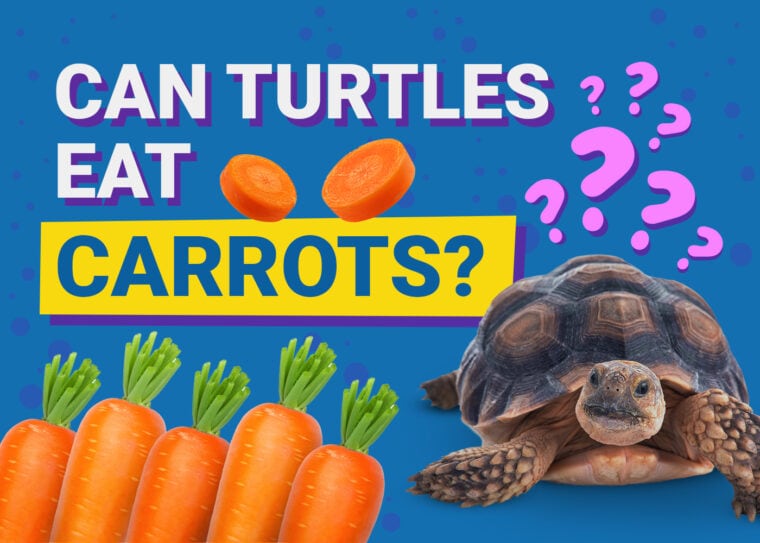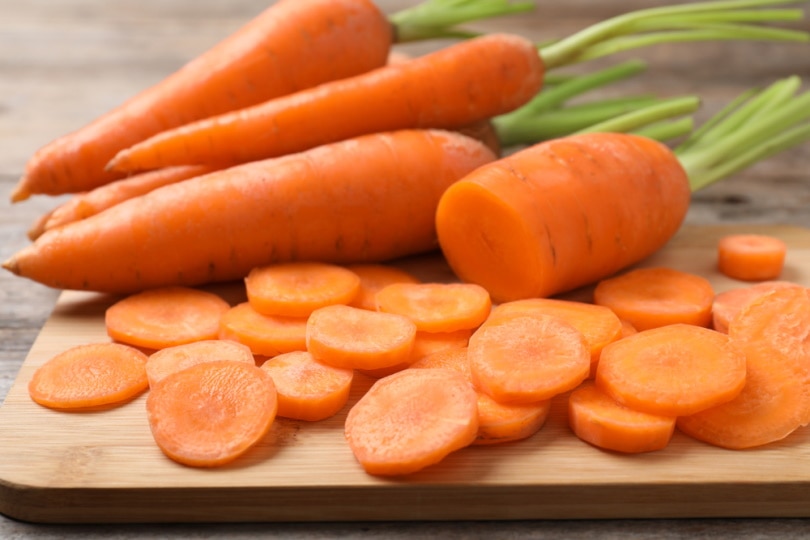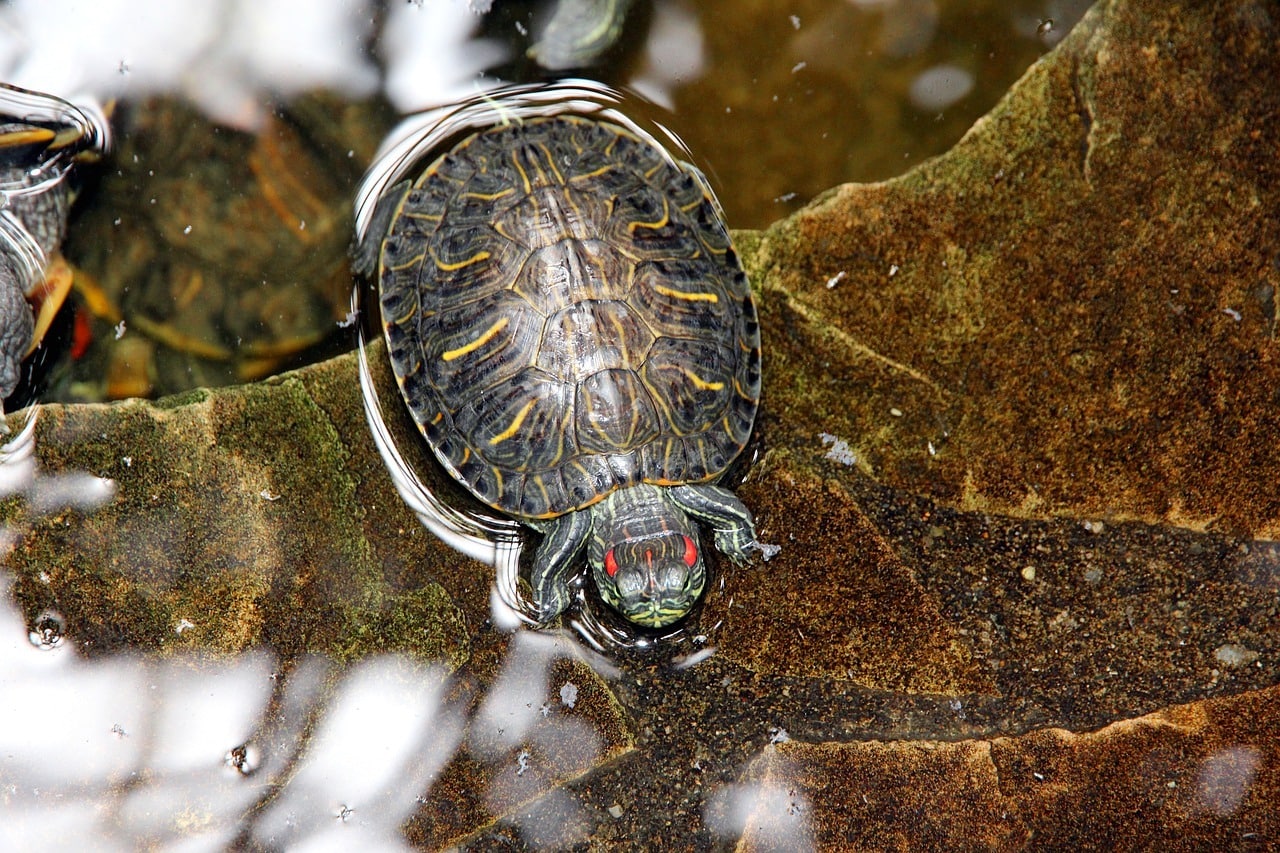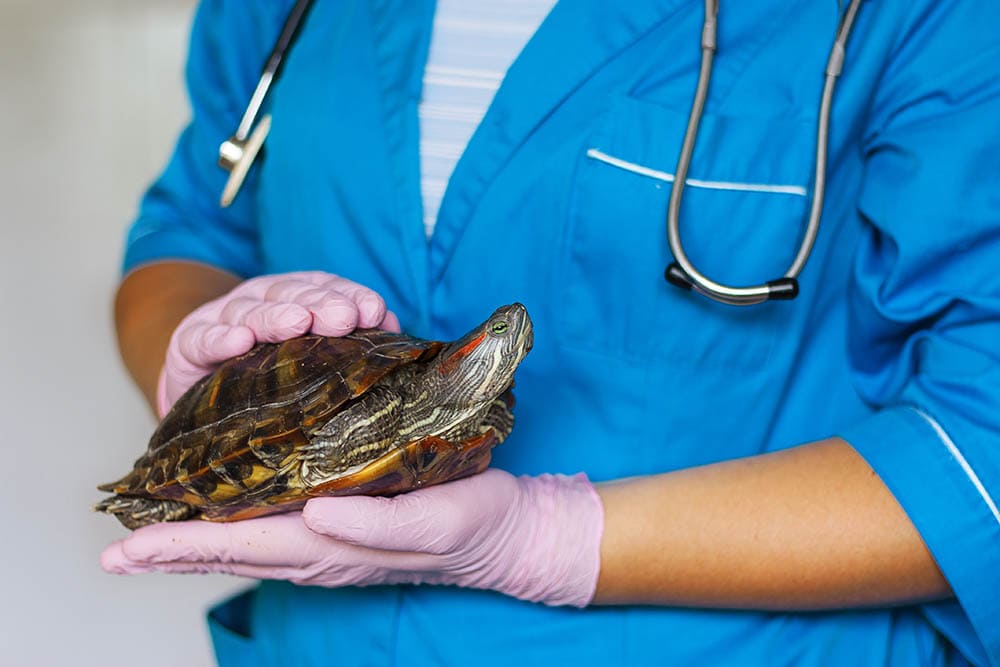
Carrots are often promoted as superfoods. Anecdotal claims state that carrots are great for boosting one’s immunity, they offer various other health benefits, and their crunch is a trait that some people just can’t get enough of. The popular cartoon character Bugs Bunny was modeled after Clark Gable, a man who was particularly fond of carrots himself.
With all the hype about carrots, you might be wondering if they are safe for your pet turtle. Carrots are safe for most turtles to eat in moderation. Baby carrots are slightly better nutritional options compared to mature carrots, but moderation is still essential.
Read on as we explore the potential benefits, risks, and feeding guidelines of giving carrots to turtles.
Are Carrots Good for Turtles?
For this topic specifically, we will be discussing freshwater aquatic turtles and North American box turtles (Terrapene).
The nutritional requirements of pet turtles vary drastically depending on several factors. Generally speaking, most freshwater aquatic turtles are considered omnivores, but their dietary requirements are quite varied due to several factors, particularly their age. In general, juveniles require more animal-based proteins (often in the form of insects, mollusks, etc.) whereas adults require more plant-based ingredients. Box turtles are slightly more flexible and tolerant regarding the inclusion of fruits in their diet.
Carrots can offer nutritional benefits to your pet turtle. Their nutritional analysis is as follows: 1
Baby carrots have a slightly different nutritional profile: 2
Carrots are perhaps best known for their high amounts of vitamin A. In plants, vitamin A is present in forms known as carotenes. Of these, beta-carotene (also known as β-carotene) is the most relevant for most herbivorous pets.
Carrots have different types of carotenes, and the total yield will vary depending on the strain of the plant, the conditions in which it was grown, its age at harvest, and other factors. Of importance here is whether your turtle can utilize beta-carotene efficiently, which will depend on their species. So, although carrots have vitamin A, the amount that your pet might be able to utilize can vary.
That said, carrots generally have the highest vitamin A content of all the vegetables and are rivaled only by sweet potatoes and maize (corn) in this regard.

The Nutritional Risks of Carrots
Unfortunately, carrots have a few considerable downsides that heavily diminish their appeal and relegate them to being a minor part of your turtle’s diet in most cases.
Calcium-to-Phosphorus Ratio
The calcium-to-phosphorus ratio of carrots isn’t ideal for a turtle, as the phosphorus is higher than the calcium. Within a turtle’s body, phosphorus naturally binds to calcium. If a food contains more phosphorus than calcium, a turtle’s body will respond by releasing calcium (stored primarily in bones) to fix this imbalance.
Interestingly, the calcium-to-phosphorus ratio of baby carrots is better compared to mature carrots. It is still not that optimal. The ideal ratio of calcium to phosphorus for turtles is around 1.5:1 or 2:1 (that is, calcium should be twice as high as phosphorus).
Sugar
Carrots contain a moderately high amount of naturally occurring sugars, making them unable to justify their place as a major component of a turtle’s diet. Excess sugar can lead to health issues in almost all species of pet turtles.
Oxalates
Carrots are high in oxalates, with ½ of a large carrot containing approximately 10 milligrams of oxalates. These are detrimental to a turtle’s health in large quantities because they bind with calcium within the body, preventing its absorption. This further deprives a turtle of calcium from their diet. Oxalates can also lead to other health issues if left unchecked.

The downsides of carrots vastly outweigh the benefits, so they should only be offered to your herbivorous or omnivorous turtle in moderation. It is best to consult your veterinarian before adding any food item to your turtle’s diet.
How Do I Feed Carrots to Turtles?
Whenever you want to give fresh produce to your turtle, you should offer it raw and prepare it just as you would prepare it for yourself or for another person. To offer carrots to your turtle, the general steps should be as follows:
What About Carrot Skin and Tops?
Carrot skin is safe for turtles to consume, and it contributes to the total fiber content of the produce (that said, carrots aren’t a great source of fiber for turtles). The tops of carrots are safe for turtles to consume and in fact, are considered healthier than the main part because they have less sugar.
- Read Also: Can Turtles Eat Strawberries?
Conclusion
While safe for turtles, carrots should only be offered in moderation. Their nutritional benefits are few and do not compensate for their nutritional risks, which are considerable.
Your turtle’s nutritional requirements will depend on many factors and periodically change throughout their lifetime. As such, it is best to consult a reptile nutritionist or veterinarian to formulate a meal plan that works best for your pet.
Also See:
- How to Care for Red-Eared Slider Turtles: Care Sheet & Guide
- What Do Baby Turtles Eat in the Wild and as Pets? Diet & Health Facts








